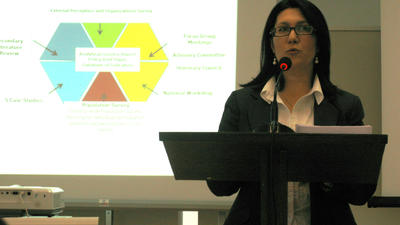-
Our work
-
Fields of work
- Arms control
- Border management
- Combating trafficking in human beings
- Conflict prevention and resolution
- Countering terrorism
- Cyber/ICT Security
- Democratization
- Economic activities
- Education
- Elections
- Environmental activities
- Gender equality
- Good governance
- Human rights
- Media freedom and development
- Migration
- National minority issues
- Policing
- Reform and co-operation in the security sector
- Roma and Sinti
- Rule of law
- Tolerance and non-discrimination
- Youth
- Field operations
- Projects
-
Meetings and conferences
- Summit meetings
- Review Conferences
- Ministerial Council meetings
- Plenary meetings of the Permanent Council
- Plenary Meetings of the Forum for Security Co-operation
- Security Review Conferences
- Annual Implementation Assessment Meetings
- Economic and Environmental Forum
- Economic and Environmental Dimension Implementation Meetings
- Human rights meetings
- Media conferences
- Cyber/ICT security conferences
- Conference of the Alliance against Trafficking in Persons
- Gender equality conferences
- Annual OSCE Mediterranean conferences
- Annual OSCE Asian conferences
- Partnerships
-
Fields of work
-
Countries
- All
-
Participating States
- Albania
- Andorra
- Armenia
- Austria
- Azerbaijan
- Belgium
- Belarus
- Bosnia and Herzegovina
- Bulgaria
- Canada
- Croatia
- Cyprus
- Czechia
- Denmark
- Estonia
- Finland – OSCE Chairpersonship 2025
- France
- Georgia
- Germany
- Greece
- Holy See
- Hungary
- Iceland
- Ireland
- Italy
- Kazakhstan
- Kyrgyzstan
- Latvia
- Liechtenstein
- Lithuania
- Luxembourg
- Malta
- Moldova
- Monaco
- Mongolia
- Montenegro
- The Netherlands
- North Macedonia
- Norway
- Poland
- Portugal
- Romania
- Russian Federation
- San Marino
- Serbia
- Slovakia
- Slovenia
- Spain
- Sweden
- Switzerland
- Tajikistan
- Türkiye
- Turkmenistan
- Ukraine
- United Kingdom
- United States of America
- Uzbekistan
- Asian Partners for Co-operation
- Mediterranean Partners for Co-operation
-
Structures and institutions
- Chairpersonship
-
Secretariat
- Secretary General
- Office of the Secretary General
- Conflict Prevention Centre
- Transnational Threats Department
- Office of the Special Representative and Co-ordinator for Combating Trafficking in Human Beings
- Office of the Co-ordinator of OSCE Economic and Environmental Activities
- Gender Issues Programme
- Opportunities for Youth
- Department of Human Resources
- Department of Management and Finance
- Office of Internal Oversight
- Documentation Centre in Prague
- Institutions
-
Field operations
- Presence in Albania
- Centre in Ashgabat
- Programme Office in Astana
- Programme Office in Bishkek
- Mission to Bosnia and Herzegovina
- Programme Office in Dushanbe
- Mission in Kosovo
- Mission to Moldova
- Mission to Montenegro
- Mission to Serbia
- Mission to Skopje
- Project Co-ordinator in Uzbekistan
- Closed field activities
- Parliamentary Assembly
- Court of Conciliation and Arbitration
- Organizational structure
- About us
Press release
OSCE supports publications on civil society development in Armenia

- Date:
- Source:
- OSCE Office in Yerevan (closed)
- Fields of work:
- Democratization, Good governance
YEREVAN, 22 February 2011 – OSCE-supported publications to promote civil society development in Armenia, titled Armenian Civil Society: from Transition to Consolidation, were launched in Yerevan today.
An analytical country report and a policy brief were prepared by non-governmental organization Counterpart International with support from the OSCE Office in Yerevan and the U.S. Agency for International Development. The publications were produced as part of the CIVICUS Civil Society Index project to analyze the socio-political and cultural environment of civil society development, ways of self-governance, mechanisms of interaction and the impact non-governmental sector has on citizens’ lives in Armenia.
The publications provide a comprehensive assessment of the main dimensions, key actors, strengths and weaknesses of civil society, and offer ways to strengthen it further. The survey looks at the environment civil society organizations operate in, the extent and diversity of their engagement, internal structures, resources, communication and networks between various civil society actors, and their impact.
“Civil society has an increased role in democratic governance and development,” said Ambassador Sergey Kapinos, the Head of the OSCE Office in Yerevan. “The assessment presented in the publications will serve as a useful practical tool for the state and civil society organizations in their continued efforts to promote democracy.”
Alex Sardar, the Vice-President of Counterpart International said: “A robust civil society and rule of law are pillars of sustainable development. It is important to reveal the the human potential embedded in non-governmental organizations and other voluntary structures to build a strong participatory society.”
Recommendations offered by the publications include strengthening civil engagement through higher visibility, education and enhanced networking; fostering transparency and internal democratic processes in civil society organizations; developing social capital, co-operation mechanisms, institutional capacities and financial sustainability; addressing challenges of public governance; contributing to corporate social responsibility initiatives; and intensifying links with the Armenian diaspora.
Civil Society Index is a participatory needs assessment and action planning tool applied around the world to enhance the strength and sustainability of civil society, and to strengthen its contribution to positive social change.